Pedro Gonzalez details the connections among Zelensky, oligarch Ihor Kolomoisky and Washington, D.C.
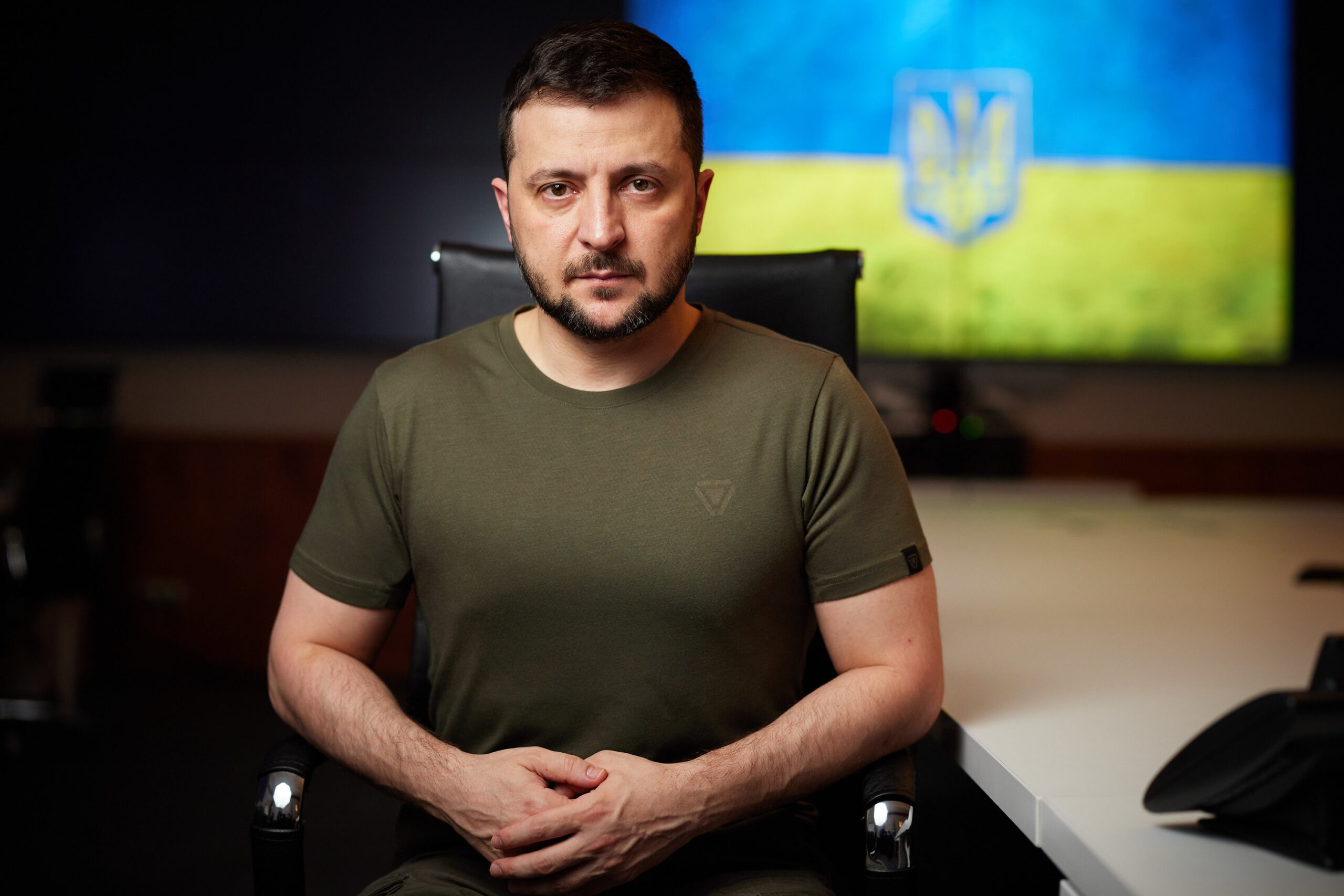
Ukraine’s President Volodymyr Zelensky in April. (President Of Ukraine, Flickr)
By Pedro Gonzalez
IM—1776
 In February 2021, by order of President Volodymyr Zelensky, Ukraine shut down three domestic television channels, accusing them of spreading Russian “propaganda.”
In February 2021, by order of President Volodymyr Zelensky, Ukraine shut down three domestic television channels, accusing them of spreading Russian “propaganda.”
Three months later, Zelenksky arrested Viktor Medvedchuk, who was at the time leading the second-biggest party in Ukraine’s national parliament, the pro-Russia and Eurosceptic Opposition Platform for Life (OPZZh).
Zelensky didn’t have trouble incinerating vaunted democratic norms well-before Russia crossed the Rubicon into Ukraine this year. So it was no surprise when he did it again amid the war in late March, invoking emergency powers under martial law to nationalize TV channels and ban 11 opposition parties, including OPZZh — all supposedly done in the name of combatting Russian misinformation and Russian sympathizers, even though OPZZh’s then-chairman, Yuriy Boyko, denounced the war and called for a ceasefire and the withdrawal of Russian troops from Ukraine.
Zelensky, however, wouldn’t miss another opportunity to clip the wings of political opposition in his country, certainly not now that Western media rationalizes and glorifies his every move.
The portrait of the Ukraine president as a democratic paragon whitewashes the real Zelensky and conceals a vast web of corruption and international skullduggery of which Ukraine is situated in the center.
Understanding the real Zelensky, requires seeing him as a creation of Ukrainian oligarch Ihor Kolomoisky. He is, in truth, a puppet of intrigue.
The Pandora Papers
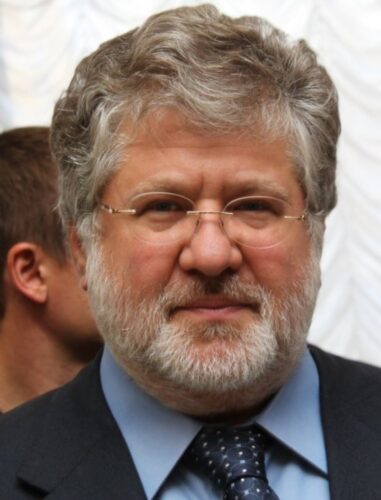
Ihor Kolomoyskyi in 2013. (CC BY 3.0, Wikimedia Commons)
It might be hard to believe now, but revelations from documents in the Pandora Papers — millions of files from offshore service providers leaked to the International Consortium of Investigative Journalists and shared with partners around the world — sent Zelensky reeling last year, threatening to end his political career. Though the actor-turned-politico campaigned as an anti-corruption reformer, the Pandora Papers showed him to be just as crooked as his predecessors.
Of more than 300 politicians and public officials, including several current and former national leaders, in more than 91 countries and territories to whom the documents were linked, Ukraine was home to more secret offshore holdings than any other, including Russia.
The Organized Crime and Corruption Reporting Project (OCCRP), which contributed to the investigation, found that just before Zelensky was elected president,
“he gifted his stake in a key offshore company, the British Virgin Islands-registered Maltex Multicapital Corp., to his business partner — soon to be his top presidential aide. And in spite of giving up his shares, the documents show that an arrangement was soon made that would allow the offshore to keep paying dividends to a company that now belongs to his wife.”
As it was with crackdowns on free speech and political opposition, Zelensky’s office attempted to justify the use of offshores by blaming the specter of Russian aggression.
An adviser to Zelensky’s chief of staff said the offshores were necessary to “protect” the group’s incomes against the “aggressive actions” of the “corrupt” regime of former President Viktor Yanukovych, who was ousted in a U.S.-backed color revolution in 2014.
The expensive properties acquired by Zelensky associates in the center of London with the offshores, it seems, were but humble havens for persecuted Ukrainians.
It was true that Zelensky and his partners in a television production company, Kvartal 95, set up a network of offshore firms dating back to at least 2012. That was also the year the company began producing regular content for TV stations owned by Kolomoisky, Ukraine’s most flamboyant oligarch and Zelensky’s key backer.
The Raider
Kolomoisky is known to have intimidated guests by feeding a live shark he kept in a huge aquarium at his Dnipropetrovsk office and has even reportedly ordered contract killings. If he did not exist, Richard Marcinko would likely have invented him as a villain in one of his Rogue Warrior novels.
Kolomoisky co-founded and was until 2016 the main owner of PrivatBank, Ukraine’s largest commercial bank, as well as PrivatBank Group, a global business coalition whose control extends across thousands of companies in virtually every industry from Ukraine, the European Union, Georgia, Russia, the United States and elsewhere.
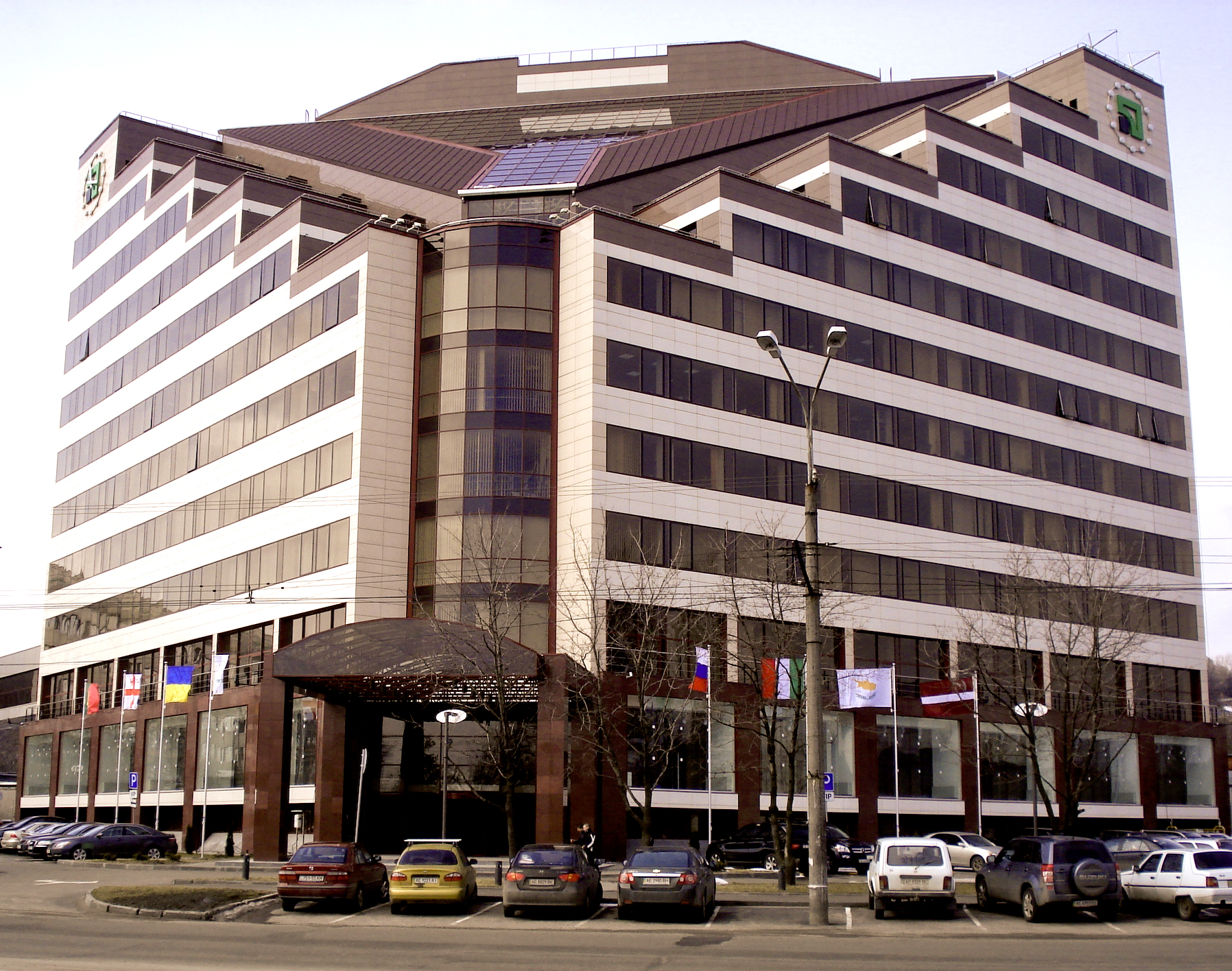
Corporate headquarters of PrivatBank in the Ukrainian city of Dnipro, 2010. (Olga Vaganova, CC BY-SA 3.0, Wikimedia Commons)
He denies having or needing influence over the president, but when the International Monetary Fund ended talks with Zelensky’s government after failing to reach a new lending agreement in 2019 (citing pervasive corruption) Kolomoisky, asked in an interview who would win if Zelensky was forced to choose between him and IMF loans, answered: “I would.”
Ukrainian media has noted that Kolomoisky has not denied financing Zelensky’s campaign.
Kolomoisky built his enormous fortune atop PrivatBank primarily as a “raider.” In a 2015 story for Harper’s Magazine about Zelensky’s backer, Andrew Cockburn colored in the meaning of that term with the help of Matthew Rojansky, director of the Kennan Institute at the Woodrow Wilson Center for International Scholars.
There are firms in Ukraine “registered with offices and business cards, firms [that specialize in] various dimensions of the corporate raiding process, which includes armed guys to do stuff, forging documents, bribing notaries, bribing judges,” Rojansky told Cockburn.
And according to Rojansky, Kolomoisky is “the most famous oligarch-raider, accused of having conducted a massive raiding campaign over the roughly ten years up to 2010.” At some point, he managed to end up on the United States’ visa ban list, prohibiting him from entering the country.
But the interests of the oligarch go well-beyond cutthroat business dealings, overlapping with Washington’s affairs in the region.
Between 2013 and 2014, the U.S. backed a color revolution in Ukraine that resulted in regime change. It also triggered a civil war between government forces and pro-Russian separatists in the eastern part of the country who declared independence from Kiev.
Amid this crisis, acting President Oleksandr Turchynov appointed Kolomoisky governor of Dnipropetrovsk Oblast. He turned his workforce into a private army to combat the separatists. Yet even as Kolomoisky morphed into a warlord, he did not neglect his business empire.
Washington-Approved Oligarch
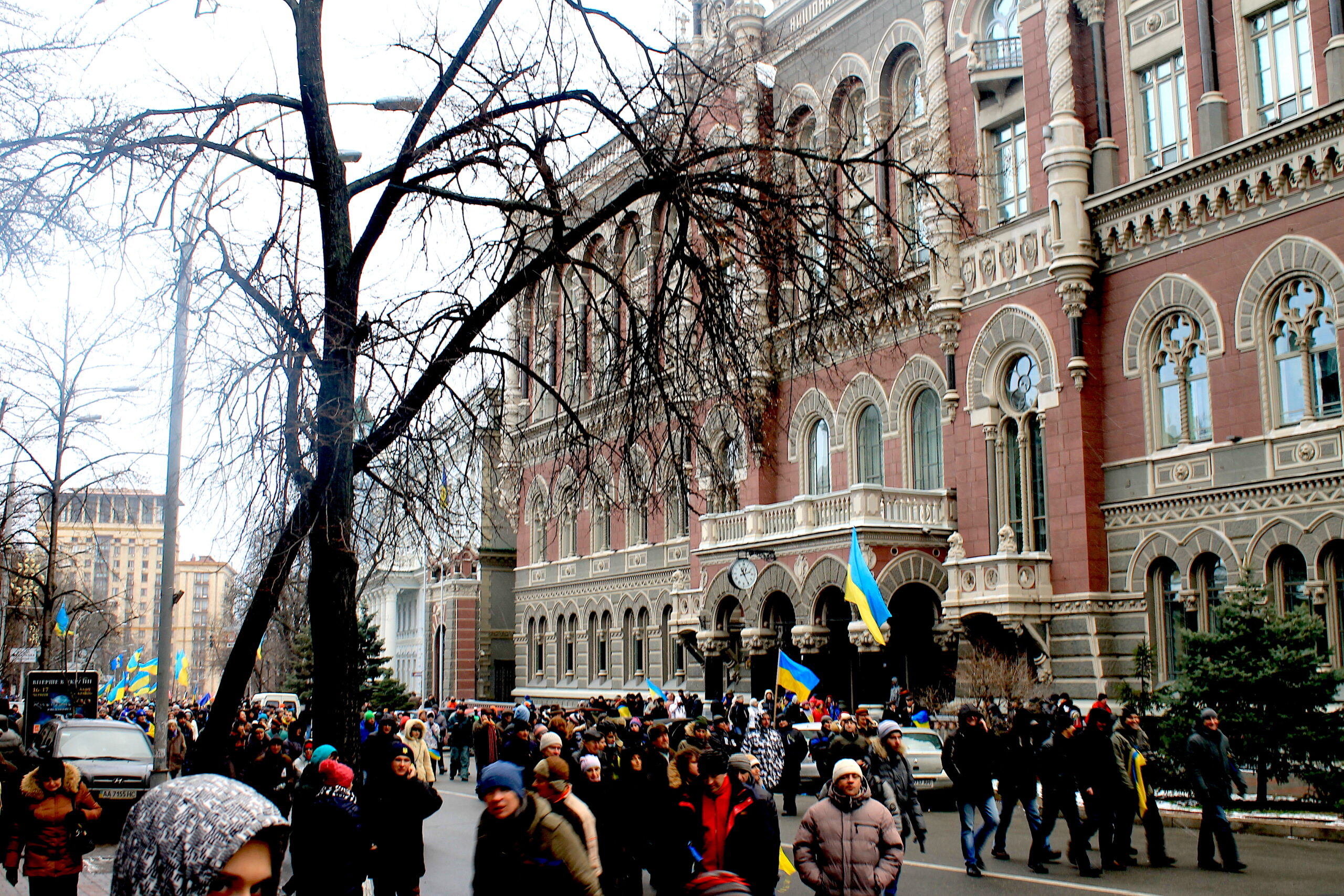
National Bank of Ukraine in Kiev, 2013. (A1, CC0, Wikimedia Commons)
In 2014, the IMF approved emergency aid to Ukraine and injected billions into the National Bank of Ukraine — the country’s central bank — to support local commercial banks.
Through a globe-spanning scheme involving PrivatBank accounts and PrivatBank Group companies and a corrupt Ukrainian court system, Kolomoisky looted billions in IMF aid. The con, as revealed in a series of court judgments, was outlined as follows by Cockburn:
“Forty-two Ukrainian firms owned by 54 offshore entities registered in Caribbean, American and Cypriot jurisdictions and linked to or affiliated with the Privat group of companies, took out loans from PrivatBank in Ukraine to the value of $1.8 billion. The firms then ordered goods from six foreign “supplier” companies, three of which were incorporated in the United Kingdom, two in the British Virgin Islands, one in the Caribbean statelet of St. Kitts & Nevis.
Payment for the orders — $1.8 billion — was shortly afterwards prepaid into the vendors’ accounts, which were, coincidentally, in the Cyprus branch of PrivatBank. Once the money was sent, the Ukrainian importing companies arranged with PrivatBank Ukraine that their loans be guaranteed by the goods on order.
But the foreign suppliers invariably reported that they could not fulfill the order after all, thus breaking the contracts, but without any effort to return the money.
Joe Biden, foreground, and son Hunter during inauguration of President Barack Obama, Jan. 20, 2009. (acaben, CC BY-SA 2.0, Wikimedia Commons)
Finally, the Ukrainian companies filed suit, always in the Dnipropetrovsk Economic Court, demanding that the foreign supplier return the prepayment and also that the guarantee to PrivatBank be cancelled. In 42 out of 42 such cases the court issued the identical judgment: the advance payment should be returned to the Ukrainian company, but the loan agreement should remain in force.”
During this period, Kolomoisky kept his portfolio of activities diverse. Twenty fourteen was also the year when then-Vice President Joe Biden’s son, Hunter Biden, reportedly joined the board of Burisma, a Ukrainian energy company to which Kolomoisky has been connected with a controlling interest, according to The New York Post.
Emails obtained by the Post revealed that Vadym Pozharskyi, a Kolomoisky protégé, communicated with Hunter in 2015 about a meeting between Pozharskyi and then-Vice President Biden. Further, bank records of Hunter (lawfully obtained according to D&A Investigations) show payments made to him by PrivatBank.
By 2015, Kolomoisky was onto his next controversy, the one that would ultimately lead to Zelensky’s rise.
In March of that year, Kolomoisky’s men physically seized control of Ukrnafta, the largest oil and gas producer in the country, and UkrTransNafta, which controls virtually all oil pipelines in Ukraine. This was Kolomoisky’s way of showing his disapproval of the government’s timid reform efforts, which posed a direct threat to then-President Petro Poroshenko’s power.
Poroshenko thus turned to Washington for help — namely, then-Assistant Secretary of State for European and Eurasian Affairs Victoria Nuland and Geoffrey Pyatt, who was U.S. ambassador to Ukraine at the time.
Nuland is an interventionist married to arch-neoconservative Robert Kagan. She’s been called “the architect of American influence in Ukraine,” was instrumental in regime change and has served in every presidential administration except Trump’s since Bill Clinton’s days. People like Nuland are why presidents come and go, but interventionist foreign policy always remains.
With D.C.’s help, in exchange for Kolomoisky backing down in April 2015, Poroshenko successfully had the oligarch removed from a years-long, U.S. visa ban two weeks later. Importantly, Pyatt and Nuland looked the other way on Kolomoisky’s IMF scheme, even as Washington persecuted other oligarchs.
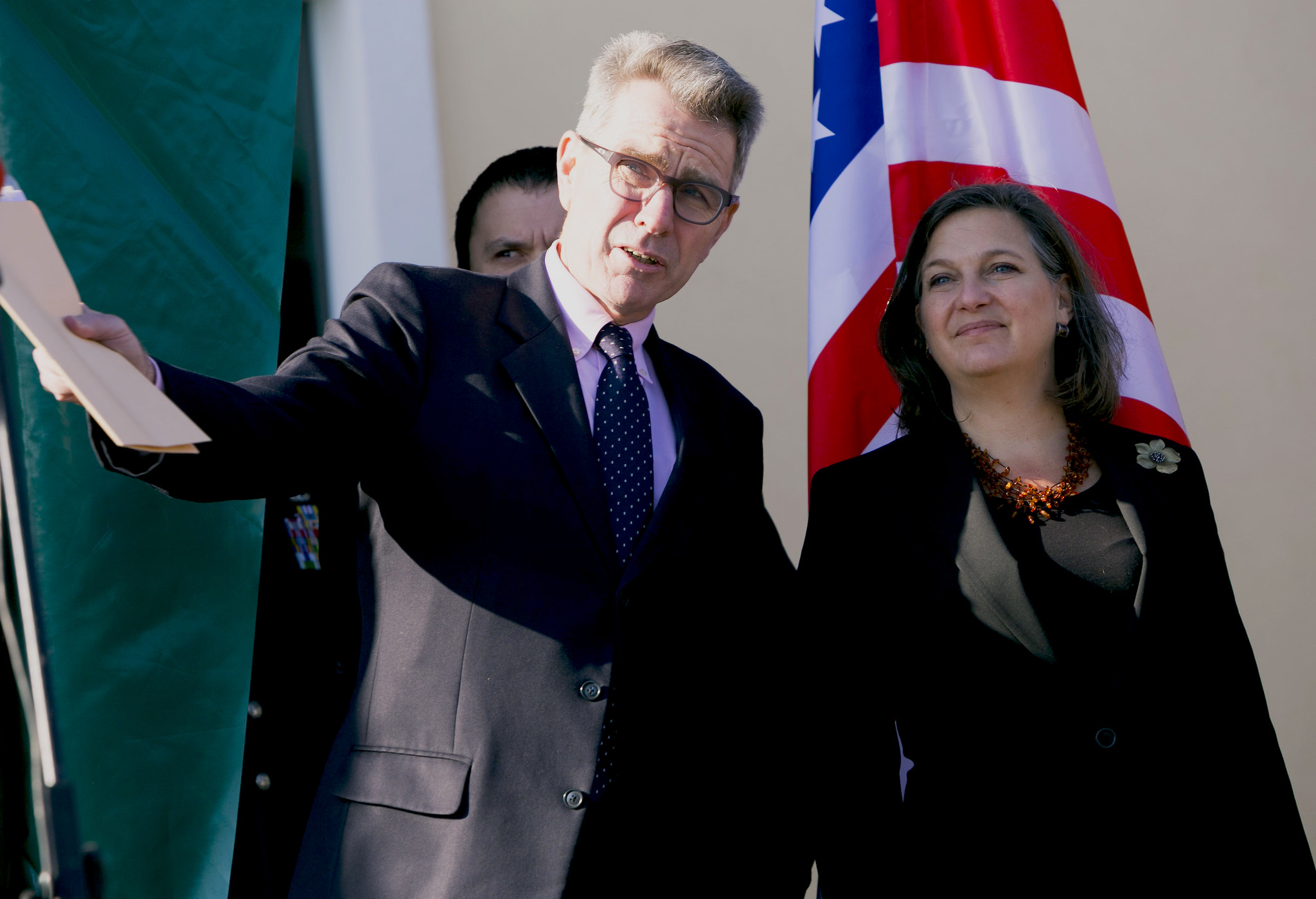
Oct. 8, 2014: U.S. Ambassador to Ukraine Geoffrey Pyatt and U.S. Assistant Secretary of State Victoria Nuland at a Ukrainian State Border Guard Service Base in Kiev. (U.S. Embassy Kyiv, Flickr)
Meanwhile, at the same time that it ignored Kolomoisky’s corruption, the State Department attempted to extradite Ukrainian oligarch Dmitry Firtash for a bribery incident that allegedly took place in India. However, his real crime was holding ties to the government Nuland had a role in toppling as well as his association with deposed Ukrainian President Viktor Yanukovych.
When Firtash appealed against his extradition, a European judge agreed and concluded that “America obviously saw Firtash as somebody who was threatening their economic interests.” Nevertheless, Washington has a long memory and Firtash may end up standing trial in the U.S after all.
Even as he was removed from the U.S. banned list, Kolomoisky allegedly continued to embezzle and defraud PrivatBank of huge sums. Some of his schemes spilled over onto American soil.
According to the Justice Department, from approximately 2008 through 2016, Kolomoisky obtained fraudulent loans and lines of credit as part of a massive scheme totaling at least $5.5 billion, i.e. roughly equal to 5 percent of Ukraine’s gross domestic product at the time.
In the U.S., millions of those dollars were allegedly laundered through commercial real estate purchases from Ohio to Kentucky and Texas. Furthermore, Zelensky’s benefactor allegedly purchased a dozen steel mills in small towns across America, leaving in his wake bankrupt factories, unpaid taxes, rotting buildings and hundreds of steelworkers out of jobs.
By nationalizing PrivatBank in 2016, Ukraine effectively put the burden of a multi-billion dollar bailout on the shoulders of taxpayers.
‘Servant of the People’
Kolomoisky would have his revenge for what happened in his domain. The confrontation with Poroshenko, which was seen as humiliating for the oligarch, concluded in March 2015.
By October, the first episode of a new show, Servant of the People aired on Ukraine’s 1+1 channel, in which Zelensky played the leading role: a high-school history teacher who unexpectedly becomes president of Ukraine and is committed to fighting government corruption. 1+1 is owned by the 1+1 Media Group, one of the largest Ukrainian media conglomerates, whose owner, according to the Atlantic Council, is none other than Kolomoisky himself, giving him “significant political influence in today’s Ukraine. His media assets were used to promote the 2019 presidential election campaign of President Zelenskyy, whose hit shows previously aired on Kolomoisky’s network.”
The Servant of the People series itself was produced by Kvartal 95, the company founded by Zelensky, whose partners were implicated in a network of offshores by the Pandora Papers. After Zelensky’s ascension, key figures of Kvartal 95 joined Zelensky’s administration.
Ivan Hennadiyovych Bakanov, for example, went from head of the production studio to the leader of the Security Service of Ukraine under Zelensky.
The show literally created Zelensky’s presidential persona, effectively allowing him to build an unofficial campaign against the incumbent administration until March 2018, when a political party named after the television series was registered with the Ministry of Justice.
In December 2018, Zelensky officially announced his presidential candidacy on 1+1.
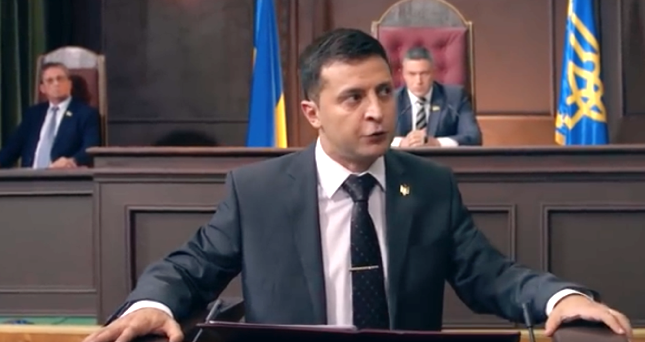
Zelensky, in a 2016 episode of Ukrainian TV comedy “Servant of the People.” (YouTube)
Zelensky, the creation of an oligarch, campaigned for president as the character he played in a comedy series with a party named after the show to victory in 2019.
During the race, Volodymyr Ariev, a political ally of incumbent President Poroshenko, posted a chart on Facebook claiming it showed how Zelensky and his television production partners were beneficiaries of a constellation of offshore firms which allegedly received millions from Kolomoisky’s PrivatBank.
The allegations were dismissed as baseless at the time, but the Pandora Papers revealed that information on several companies in the network corresponded with Ariev’s chart, the OCCRP noted.
Shortly after taking the reins, Zelensky and his Servant of the People party began firing, supposedly for inefficiency, Ukrainian ministers with reputations as anti-corruption reformers.
Daria Kaleniuk, head of Ukraine’s Anti-Corruption Action Center, told The Washington Post in March 2020 that the affair sent the message that Zelensky “can fire a person who takes a risk, for doing the right things, and blame this person for inefficiency.”
Kiev-based reform reporter Oleg Sukhov echoed the sentiment last year, writing that “Zelensky has consistently protected corrupt officials from prosecution and killed anti-corruption reforms.” On the other hand, when faced with a petition calling for his dismissal, Zelensky refused to fire Oleh Tatarov, his deputy chief of staff, who had been charged with bribery.
The people put on the chopping block were also the ones most likely to threaten the power of oligarchs like Kolomoisky, from whom Zelensky may have learned a thing or two.
In a 2020 press conference, he remarked that he wanted to be “remembered as the president who built good roads in Ukraine.” One of the handful of construction companies that have received a significant share of state funds for building public roads during his tenure is PBS LLC, which is linked to Skorzonera LLC, a company co-owned by Kolomoisky, according to corporate records.
PBS has been accused by Ukrainian investigators of misappropriating millions in state funds for road work. A ruling by a court in Ivano-Frankivsk Oblast noted that together with the Kolomoisky-controlled Skorzonera it is connected as part of a web of related business entities with overlapping addresses and personnel. PBS and Skorzonera had even sent their tax declarations from the same IP address.
Notably, former Customs Minister Maxim Nefyodov was one of the reformers fired by Zelensky. Nefyodov is most well-known for having created ProZorro, a system designed to tackle corruption in Ukraine’s public procurement sector.
After dismissing Nefyodov, Zelensky’s party used its majority to pass legislation that would allow the most expensive road construction project in modern Ukrainian history to be built with zero oversight, ProZorro exempt.
Last June, the Kyiv Post reported how Zelensky “has doubled spending on road repairs, reaching into the pocket of the COVID relief fund and spending money Ukraine has won in international courts.” An interesting source of cash, considering that the IMF approved a multi-billion dollar aid package in 2020 “to help Ukraine to cope with COVID-19 pandemic challenges by providing balance of payments and budget support.”
Is it possible that Zelensky has taken a page out of Kolomoisky’s book by taking liberties with international aid? It’s hard to say for certain.
Also unclear, is why the State Department decided to once again sanction Kolomoisky last March after he was taken off the bad list despite his own international scheming. In a press statement, Secretary of State Anthony Blinken said the reason was “due to his involvement in significant corruption.” But they were aware of that when they put him on and took him off the list the first time.
Stranger still, Blinken specifically cited the years 2014 to 2015, when Kolomoisky “was involved in corrupt acts that undermined rule of law and the Ukrainian public’s faith in their government’s democratic institutions and public processes, including using his political influence and official power for his personal benefit.”
Again, this is not a revelation, considering that Nuland played a role in getting Kolomoisky off the list the first time during that period, back when Blinken served as deputy national security advisor under Obama. Blinken didn’t even mention Kolomoisky’s alleged plundering in America.
Puppet of Intrigue
In 2019, just after Zelensky won his election, Kolomoisky signaled that he was prepared to pour oil over troubled waters and make peace with Russia.
The civil war in eastern Ukraine has so far claimed more than 14,000 lives. The oligarch said it was enough: “They’re stronger anyway. We have to improve our relations,” he said about Russia and Ukraine according to The New York Times.
But he also saw an obstacle: “People want peace, a good life, they don’t want to be at war. And you [Washington] are forcing us to be at war, and not even giving us the money for it.”
Did the U.S. sanction Zelensky’s patron, the way it did Firtash, to nudge him in the right direction?
In the latter case, the U.S. threatened to arrest Firtash for bribery to pressure Yanukovych into signing a trade deal with the E.U. But the deal was, in reality, a ploy to destabilize Russia’s economy.
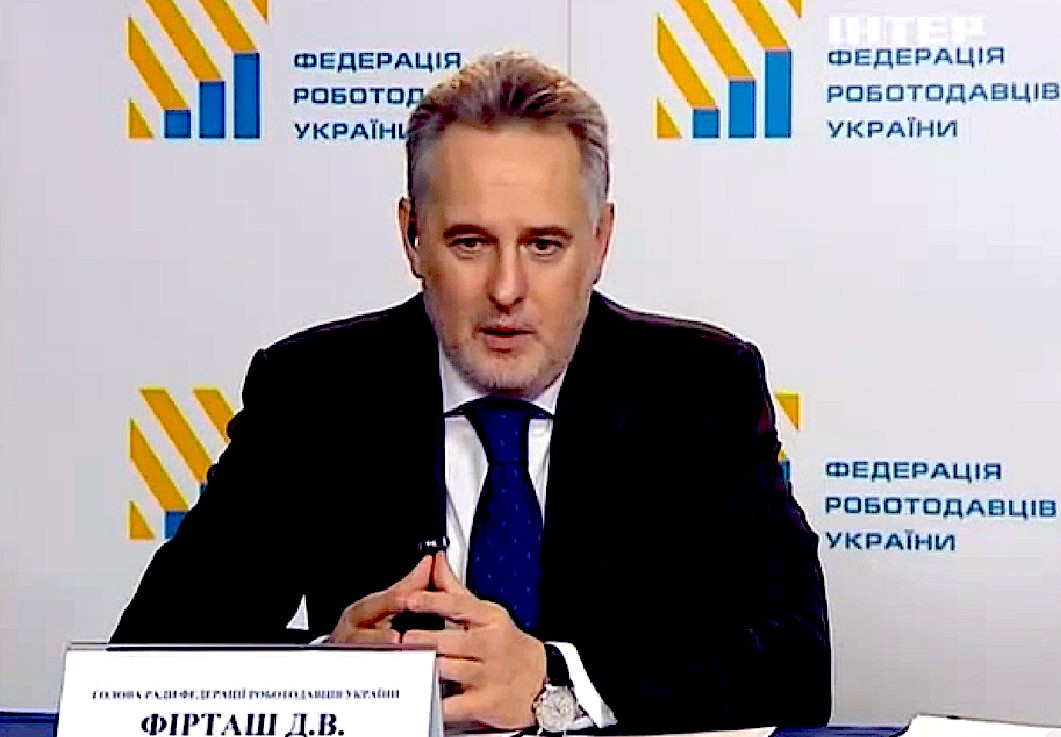
Dmitry Firtash appearing on TV in 2015. (CC BY 3.0, Wikimedia Commons)
Despite being characterized as merely “pro-Russian,” Yanukovych, as The Economist explained, preferred “to preserve the status quo and refrain from joining either camp while continuing to milk [the EU and Russia].” And so the United States squeezed his friend to encourage Yanukovych to tilt in the desired direction.
“If Yanukovych were to be persuaded to change his mind, threatening to put his sponsor Dmitry Firtash behind bars was a potent lever to apply,” wrote Cockburn. “Four days later, Yanukovych signaled he was ready to sign, whereupon Washington lifted the request to shackle his billionaire ally.”
But Yanukovych changed course and accepted a counteroffer from Moscow, a moment that became the flashpoint for a color revolution. Per Cockburn: “Street protests in Kiev followed, eagerly endorsed by Nuland, who subsequently distributed cookies in gratitude to the demonstrators.”
Yanukovych fled Kiev on Feb. 22. Four days later, Washington renewed its efforts to arrest Firtash. “They duly did. Briefly imprisoned, Firtash posted the equivalent of $174 million bail and waited for a court to rule on his appeal against extradition.”
Whether something similar happened with Zelensky’s oligarch is another good question; likely one that won’t be answered anytime soon.
The Big Lie
The war has completely reinvented Zelensky, thus saving his scandal-plagued presidency marked by broken promises. As a Kyiv International Institute of Sociology poll showed, just 24 percent of voters supported him in late January.
But now, thanks to the West’s embracement of the actor’s new persona which often places him beyond reproach, Zelensky has become the recipient of unqualified adoration and enormous amounts of international aid money.
“Before the war the U.S. was sending $300 million per year to Ukraine,” Mark Cancian, a senior adviser at the Center for International and Strategic Studies, told NPR. Now, we’re providing $100 million a day to what was until recently considered “the most corrupt nation in Europe.“
As of today, the United States government alone is on track to deliver more than $50 billion in total aid to Ukraine. For comparison, the Department of Homeland Security estimated that Trump’s proposed border wall would cost roughly $21.6 billion.
Republicans in particular, spent the first two years of Trump’s term resisting his efforts to fund and build the wall, before reluctantly agreeing to support just a fraction of what they approved for Ukraine at the drop of a hat, even challenging the patriotism of their critics.
What is the likelihood that those billions in international aid will vanish into well-connected pockets?
No one is asking these or any other important questions. Just as no one asked if it was odd when Zelensky stated that Russia would have to “kill all residents” in Ukraine’s capital to take it and get to him.
That, seems the high price that the ‘servant of the people’ is willing to let Ukrainians pay; and one that Washington is happy to let Americans subsidize.
Pedro Gonzalez is a senior writer at Chronicles: a magazine of American culture, and the author of the Contra newsletter.
This article is from IM—1776.
The views expressed are solely those of the author and may or may not reflect those of Consortium News.

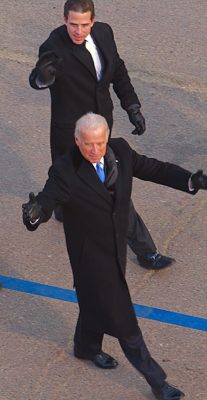
This excellent article should be essential reading. In addition, it should be stressed that after independence in 1991, Ukraine not only continued Soviet-style bureaucratic corruption but also went to a spectacular new level of neoliberal corruption by oligarchs using neo-feudalistic methods. For example, many corporate “raiders” financially supported armed militias to enforce their takeovers of victim companies. Most of these militias were far-right ultranationalists with ideological ties to Stepan Bandera and other western-Ukrainian collaborators with the Nazis during WW2. In Kolomoisky’s case, he sponsored the Azov Battalion, which, with Kolomoisky’s financial backing, grew into the most powerful and influential neo-Nazi group in Ukraine. After the recent fall of Mariupol, many captured ultranationalist Azov fighters could be seen displaying their tattoos of swastikas, portraits of Hitler, and various SS symbols. Given Kolomoisky’s sponsorship of and control over candidate and then president Zelensky, it is likely that after Zelensky’s election Kolomoisky ordered Zelensky to abandon his pro-peace policies and switch to a pro-ultranationalist hawkish position. Zelensky was literally the best Ukrainian president money could buy. Zelensky’s sudden policy reversal after he was elected was outrageous and made a mockery of democracy, but surely it was only a more blatant example of what goes on a bit more subtly in Washington DC by both parties all the time.
Can you recommend some good sources for the historical background in post-Soviet Ukraine?
An excellent article!
The history of US priorities is of interest. Many professed “liberals” (etc.) do not want to look.
In 1940 under FDR the budget (for 1941) transformed “Public spending” to spending for the military. Of course,
a war was coming on. US priorities have been weighted that way ever since as several writers have pointed out a
(eg Gabriel Kolko, Jack Rasmus etc. )The “Truman doctrine” of March 1947 gave only American (self) interest as
a justification. These priorities have characterized all US actions since then.
“Most corrupt nation in Europe”had a link, which I read. A lot of of detail about the corruption of Yanukovych . The Ukrainians didn’t just push him out for trying to over ride their vote to start the process of joining Europe. Yet all we tend to hear is that he was ‘unlawfully deposed by a CIA led plot.’
He was. That does not mean he wasn’t corrupt.
Why should anyone care about this? As long as we use the right pronouns, “stay safe” from Covid and remember to recycle. And don’t forget that Putin is a thug and a killer and Trump is the Orange Man.
All the criminal politicians and oligarchs are in bed together. Washington is as corrupt as Kyiv. Zelensky is a treasonous man even without any evidence of his real corruption. They are all people without honor.
A tangled web of lies, corruption and double dealing. It’s hard to keep track of the thickness of it. It appears that the U.S. is not only the party to it but so embroiled in the affairs of this country as to own it.
I don’t believe that the super-rich are smarter than the rest of us. I also don’t believe they work hard at all. Of course they are sociopaths.
And?…If they’re not smarter than you why aren’t you just a little bit richer? Smart people don’t work hard; that’s the Christian peasant mentality. These gangsters get other “hard working servants” to do the lift and carry while they take the profits..
“Before the war the U.S. was sending $300 million per year to Ukraine,” Mark Cancian, a senior adviser at the Center for International and Strategic Studies, told NPR. Now, we’re providing $100 million a day to what was until recently considered “the most corrupt nation in Europe.” $100 million a day, damn, what might that amount of money assist here in the US where homelessness is rampant, American children go hungry every day, veterans of the US armed services suffer needlessly, our infrastructure crumbles right before our very eyes, and well, life is this nation, for working people that is (oh yeah, the middle class in disappearing quickly), has become a national shame. But believe it or not, we just can’t find the funds for We the People: Oh well!
So much unaccounted money and so many criminals can only make sure the party will not end for a very long time and after the last Ukrainian, they will continue the party with the Europeans until the last man standing if they can.
Yes, the oligarchy scammers need not bother to make weapons and start wars to sell them, when they can directly steal government funds and foreign aid, strip assets from companies, and leave the bill for taxpayers. That is the modus operandi of US political parties, and the reason that DOJ/FBI/HSI/IRS never investigate the big fish. The federal judiciary would not cooperate if they tried such a case.
We’re not important Mark. You’ve got to consider what we’re voting for. We’re vindicating the states quo. That’s why things will never change unless we get wise to the game.
I just read an article posted by Covert Action Magazine – very interesting details of what corruption is doing in Ukraine – in no small part thanks to the US-supported ‘leader’ Zelensky. Shysters all over yelling for more financial help every day – and yet millions stashed away in banks. To me Zelensky is a fishwoman…
Yes, a good article How Corrupt is Ukrainian President Volodymyr Zelensky? at CovertActionMagazine dotcom.
It too shows Zelensky to be the protege and puppet of crooked billionaire Kholomoisky, a finance scammer.
Excellent article. I was aware of about half, so it fills in some interesting holes.
I originally copied this link from consortiumnews: ukrainegate.info It gives an excellent “flavor” for the corruption in Ukraine and how Joe Biden, and other Americans (mostly from former Soviet Union families) have tapped into that corruption and made Ukraine their playground.
Thanks for this essential background on Zelensky; he and US policy on Ukraine are the product of financial corruption.
Certainly intended by the MIC to create fake monsters to sell arms; MIC cashflows to US political parties are known.
But also certainly intended by the oligarchs to weaken Russia in Syria to benefit Israel.
Would be interesting to see the cashflows to US political parties from the oligarchs.
I can only imagine how much Zelensky and Guido sock every month from our ridiculous support of their leadership. And all those road repairs are great for Ukraine as the country continues to be blown to bits. Mr. Gonzalez certainly lays out a hair-raising account of our aided and abetted corruption.
“Servant of the corrupt,” notes “Kolomoisky is known to have intimidated guests by feeding a live shark he kept in a huge aquarium at his Dnipropetrovsk office.” Oligarch Kolomoisky exemplifies the kind of influence Ukrainians desperately wanted to be rid of and the reason they stood in the cold for months in Maidan Square in 2013-14. Of course after US violent overthrow of Ukraine, Kolomoisky and others like him were given more power than ever by US installed new Prime Minister, Yatsenyuk, “Yats is the guy,” as Ms. Nuland declared at around the same time she was offering free sandwiches to freezing Ukrainians in Maidan, saying, “We’re from America.” John McCain spoke to desperate, cheering crowds, telling them “America stands with you.” The first thing Yats did was to call in Ukrainian oligarchs and offer them governorships of their desired region, Eastern Ukraine being most urgent. Ihor Kolomoysky’s appointment to Eastern Ukraine’s Dnipropetrovsk oblast was among Yats’ first announcements. 3/2/2014, “Ukraine Turns to Its Oligarchs for Political Help,” NY Times.
I will be straight out here i am a conservative by vote but this kind of real journalism is why i keep coming back to the site and recommending it to others.It makes you realize main stream media is nothing but a carefully controlled megaphone for the wealthy elite and corrupt politicians .This is what the others are meant to be doing………As they say “democracy dies in the dark” well it sure does especially when you have people making sure all the lights are switched off…..
An investigative article that really needed to be written, exposing the deeply corrupt and dangerous Zelensky for what he truly is, pawn of the globalist oligarchy led by Americans and Israelis, seeking to destabilise and dissect Russia, then commandeer all its resources, not the heroic Winston Churchill figure that clueless Americans are led to believe. Now, somehow get this document into the so-called mainstream media, which sadly is otherwise tasked with brainwashing the public into thinking that Putin and Russia are the source of all evil in the world. With the fate that the West has planned for Russia, they might as well “push the button” if Washington persists in its greed-driven scorched earth warmongering foreign policies.
Being an oligarch seems like an awful lot of work to me. Most people are motivated to work just enough to meet their basic needs and have what they think they need for “play”, whether that be pursuing a hobby, sports, travel, relationships with friends/family, etc. But the fact that these people put in so much more work to gain so much more money than it could conceivably take for any possible hobby, etc. means that to them, this “work” is play. Money, connections and power are what they want to spend their life pursuing. It’s a game to them, admittedly one with high stakes including possibly their freedom or their lives if they miscalculate. But that’s all part of the “fun”.
The super-rich are not just smarter/harder working/luckier versions of all of us. They are fundamentally wired differently, which is what allows them to become super-rich. The best term for this difference is probably sociopathy. By definition, the super-rich are not good people.
I think the better descriptor is narcissistic psychopath. Sociopaths act more on compulsion. Psychopaths are coldly calculating. You describe what gets these people “off” very well. It’s all a game to them.
The rich, super rich, have never worked a day in their lives – let others do all the dirty work and receive pittances as compensations. Too many people are blinded by this ‘shine’.
Negative. They are just like the rest of us. You think you’d be altruistic if you were in power with money and fake, but you wouldn’t. You’d be just as bad as these guys. That’s what it is to be human – we exploit our environment better than any other life form.
But our talents in manipulation coupled with our survival mechanisms makes for our quintessential selfishness. Ultimately, no one gives a shit about anyone but themselves. Helping others is just another way of helping yourself – altruism is not a human feature.
Speak for yourself, pal.